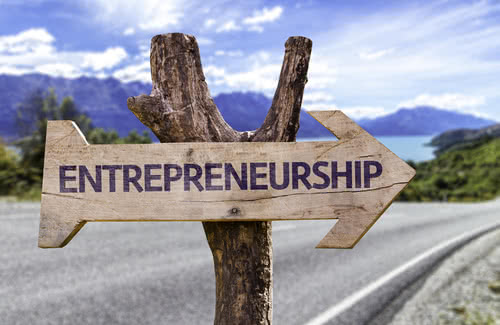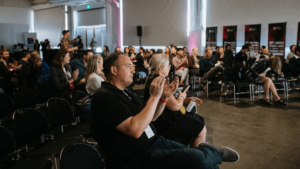We asked three prominent members of the events community to share their views about entrepreneurship in the events industry. What’s good, what can be improved and how can event entrepreneurship be encouraged?
Our contributors were:
- Jennifer Jenkins (JJ), Chair of industry association ABPCO;
- Alistair Turner (AT), Campaign Director for industry body Britain for Events and PR Director at Davies Tanner;
- Emma Abson (EA), Senior Lecturer & Programme Leader for Events Management at University of Greenwich Business School.
If you have any additional questions, please ask them in the comments below!
Do you feel the events industry is entrepreneurial enough?
JJ: Yes; in the UK it is dominated by small, independent players; often owner/manager led. The extent to which event planners – working within those agencies – are entrepreneurial is another matter.
EA: I think there are some really interesting and exciting things going on in the industry right now. We are seeing a huge amount of innovation in some areas – though on the whole, I feel that the industry is rather risk-averse, particularly from a financial perspective – and this can often have an impact on the event manager’s ability to innovate and initiate change.
AT: Yes, out of the 25,000 UK businesses in the events industry, an overwhelming majority are either small or SME size. On the whole this gives us an agility and entrepreneurial spirit that, when combined with the natural creativity of our industry, creates an entrepreneurial and ‘can do’ environment. You need look no further than the imagination and ambition that is put into events every day in the UK to know it is entrepreneurial in nature.
How could aspiring entrepreneurs be better supported?
AT: Entrepreneurs need time, reward and energy. The best way to give them all of this is to cut down on lengthy procurement practices and unneeded RFP elements. This needs to happen at buyer / procurement level and will free up event organisers to do their jobs better, and to not lose money and time trying to win business. The red tape is important and it is needed, but it should be assumed and then proved once the business is awarded, rather than proved and reproved every time a new brief comes in.
JJ: We need to embrace the new opportunities that technology and the increasing digitisation of events will bring. Event planning is no longer about pure logistics – and production. It is about content and disseminating content. That, in itself, is a more entrepreneurial quest. We need to make sure that those working in the event industry are educated/aware of the opportunities.
EA: In an ideal world, event managers wouldn’t need to be focused solely on the financial aspects of their events – thereby allowing them the space to create and experiment. But the industry is largely driven by cash; either raising enough to support community or cultural events, or making enough to satisfy boards and bosses. So perhaps the entrepreneurial spirit could be fostered through the understanding that even small risks can lead to great changes.
Is it ever possible to spot if a new event idea will be a success? What common factors do good ideas have in common?
EA: It can be easy to spot good ideas if you know your sector and you know your audience. Good ideas stem from giving the audience something they want or something they need. Good ideas also fit with the values, objectives or needs of the organisation and they will meet the common goals of key stakeholders.
AT: Yes. Great ideas are rarely non-strategic, but they are always pure. Basically a great idea will chime with a particular audience or community, this is a key success factor. After that the idea needs to be nourished and not watered down.
JJ: Good ideas don’t often have anything in common. Good ideas that work always have a well thought-through commercial business plan behind them – and someone who can drive that plan.
Beyond the idea, are there commonalities shared by most successful new events in terms of the execution? What do they tend to get right?
JJ: Market research! Good ideas don’t always sell and/or attract an audience. New events – if commercially driven – need to know and understand demand – if any – for the product.
AT: Every event needs to put its audience at the heart of its strategy. As long as it keeps its core audience pure, and makes sure it always delivers relevant information / entertainment it will be OK.
EA: Successful new events are executed with an eye for detail. Budgets are tight, programmes are well considered and operational planning is exercised with extreme care.
What is a common mistake you see new events or new organisers making?
EA: Not understanding their audience, not considering their marketing strategies and not paying enough attention to the operational plans. Also negotiation with suppliers seems to be a weak point for new organisers – perhaps because of a lack of experience in this area.
AT: The biggest issue is to make the event outgrow its audience. Inevitably this means the content will be broadened and relevance lost. The best way to grow an event is to grow the community that it serves, not grow outside of the community.
JJ: Poor budgeting. Annual events need investment and will rarely deliver profit first time out. They take time to become established.
Do you think event entrepreneurs display any common characteristics?
AT: Dynamism, ambition, passion for great products, purity of thought; stubbornness …
JJ: Resilience. And an ability to think long-term.
EA: They tend to have a reputation as risk takers and innovators. Not normally shy, they take leaps of faith and are willing to push boundaries and try new things. They recognise the need to work with others, though aren’t always the best at listening or taking advice!
What one piece of advice would you give to any other aspiring event entrepreneurs out there?
AT: Remember your audience, get to know them, spend time with them as much as possible, talk to them, listen to them, nurture them. They are your event, make it their event.
JJ: Events need delegates, participants, audiences. Think why someone would want to attend your event. And get the pricing right. There is a value – and a price point – to most events. Don’t set the price of attendance beyond the reach of your target audience!
EA: Look, listen, learn – and go for it!
What event do you wish you’d started?
JJ: Probably not an event. Probably an event format. I love the way that TED engages with a global audience both on and off-line.
AT: Taste of London, Bestival, any of the Secret Garden Parties or the Secret Cinema …
EA: I have a particular fondness for a smallish festival called End of the Road – it’s got a wonderful ethos, a consistently great, and varied, festival programme and it innovates and delivers year on year. Plus the venue is completely stunning!
Do you have a great idea for a new event?
Then you should enter The Spark for your chance to win over £5,000 worth of free mentorship, products, services and training from top brands including Eventbrite, Moo, General Assembly, Moneypenny and Britain for Events!
Don’t delay, entries close October 31st at 11.59pm.





